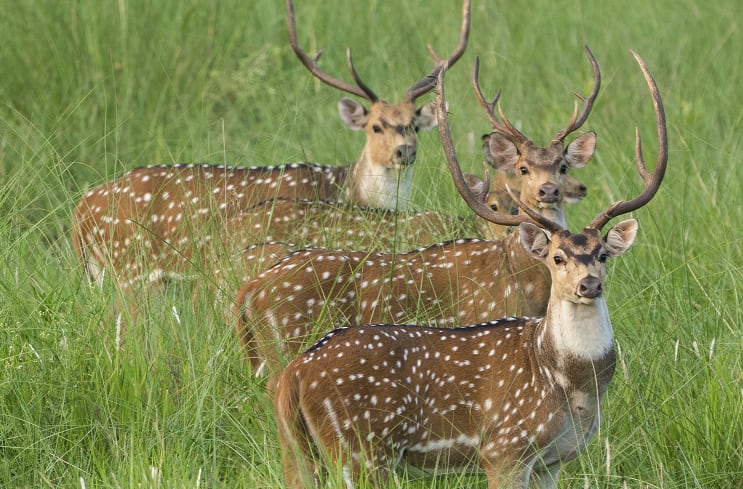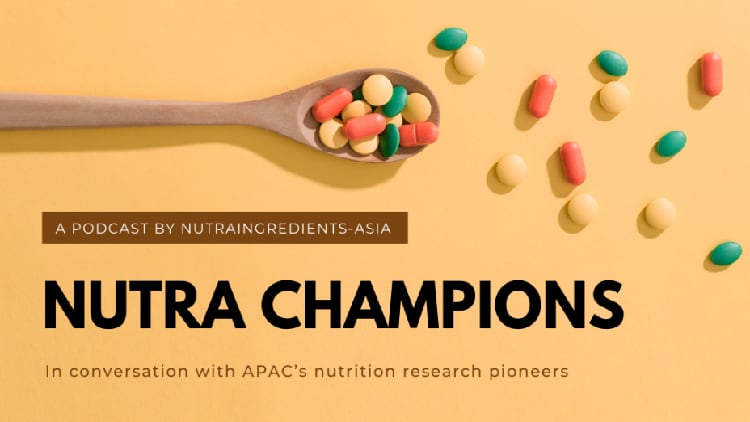Pāmu is the Māori word for ‘to farm’. The company has core businesses in farming and forestry, producing products such as lamb, beef, sheep's and cow's milk.
At the moment, it has not commercialised deer milk products for nutritional purpose, although it supplies to restaurants for dessert making and has also developed its own line of skincare products, such as face masks, moisturisers, and serum from deer milk.
The research will be led by Professor Marlena Kruger from Massey University, who has been awarded a funding of NZD$244k (US$170k) from the High-Value Nutrition (HVN) National Science Challenge.
Speaking to NutraIngredients-Asia, Professor Kruger said the hypothesis of the study was that the consumption of deer milk would increase muscle strength and maintain good nutritional status.
“We want to see it as a good extra protein supplement for the older generation to support general nutrition, improve their nutritional status, and to support the older population in their activities of daily life, such as climbing the stairs, shopping, getting up from a chair, to be more agile and to be able to get around,” she said.
The trial will recruit 120 women who are mostly of the Asian ethnicity, over the age of 65, and have low to normal BMIs.
They will be randomised to consume either 200ml of deer milk or a commercial oral nutrition supplement daily for 10 weeks.
The study will measure parameters such as changes in grip strength, body composition, and vitamin levels, as deer milk contains B vitamins, vitamin A, and some vitamin K.
Gut comfort is also being assessed as this is said to be the first-of-its-kind trial that uses deer milk as a nutritional intervention. The purpose is to find out the test participants’ gut tolerability towards deer milk.
As compared to cow’s milk and buffalo’s milk, deer milk is said to be higher in fat and protein content, low in lactose and also contains calcium, magnesium, zinc beneficial for bone health.
“Muscle mass declines after 50 and older adults become prone to arthritis, showing potential for older adults to gain considerable benefit from the increased protein and anti-inflammatory properties of Pāmu deer milk,” added co-principal investigator and nutritionist, Professor Pamela von Hurst.
Rare, high value ingredient
Pāmu believes that the functional ingredient made from deer milk have the potential to become a high value ingredient.
The company started producing deer milk five years ago and farms about 15 per cent of all deer in New Zealand.
It has decided to expand its deer milk business into the nutrition sector as part of its anecdotal experience and also hoping to provide an alternative to individuals who are allergic or have low tolerability towards other dairy products.
“I think it [the business expansion] comes back to the evolution of a product…We tried to find different applications for deer milk as we learned more about it," said Hamish Glendinning, business lead of the deer milk category at Landcorp.
Deer milk is said to be of a creamier texture as compared to cow’s milk and comes with a neutral flavour.
Once there are promising scientific findings, the company intends to export the functional health product to China and South East Asia, as these markets have a greying population and a growing middle class.
“I think a lot of it comes down to the acceptance and understanding of the product. In China, there were historical references to deer milk, and it was always saved for the royals,” Glendinning said, adding that the company has been on the lookout for commercial partners in the meanwhile.
On the other hand, a deer can only produce one litre of milk per day whereas a cow can produce 25 litres of milk.
“This is a very rare, unique high value ingredient that is not looking to displace cow’s milk or even goat’s milk, or sheep milk.
“This has to be a very specialised product solution, which is why we are engaging this clinical work,” he said.
“Pāmu sees a clear market opportunity in the healthy ageing space, providing a natural and great tasting nutritional solution.
“The research findings from this project will add to the existing dossier of scientific evidence for Pāmu deer milk and will be fundamental to commercialisation of a finished product that could underpin a new industry in New Zealand,” said HVN Challenge Director Joanne Todd.





